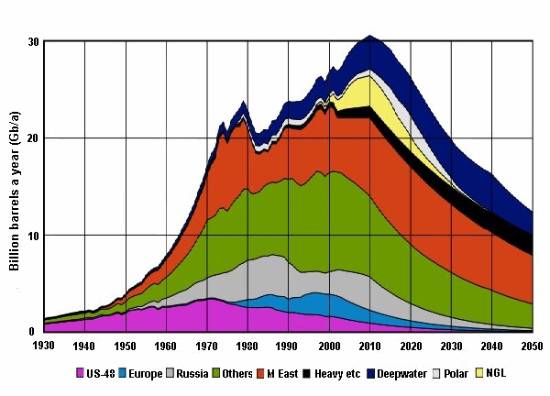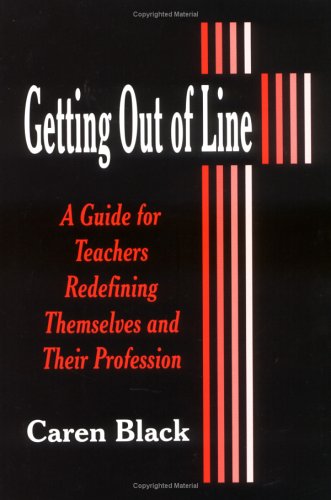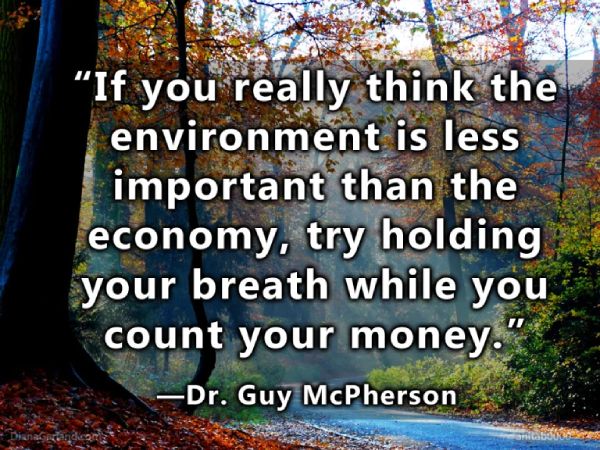I have reported on the dire impacts of global peak oil at guymcpherson.com for many years. My reports from August 2007 onward indicate the potential for peak oil to terminate industrial civilization. Information I discovered a few years later indicates that stopping or even slowing industrial activity will cause our extinction.
Our extinction could result from a reduction in aerosol masking or the meltdown of some of the world’s nuclear facilities. The latter phenomenon would cause stratospheric ozone to be stripped away, thereby causing extremely rapid planetary heating. Again, I have reported these findings previously in this space. Responses to my freely available work, rooted in evidence, have included denial, non-evidentiary argumentation, and a coordinated defamation campaign that effectively removed me from public service. But enough about me.
A reduction in aerosol masking has caused regional increases in temperature that have led to regional increases in precipitation, as indicated by peer-reviewed research I have shared in this space. Fortunately, these impacts have not yet gone global. Rather, they have remained regional in scope, beginning in the area around Wuhan, China, where the pandemic broke out. Regional increases in temperature and subsequent increases in precipitation followed the pandemic to India, Europe, and the northeastern United States.
As I have already reported in this space, I had a paper published in the peer-reviewed journal Bulletin of Science, Technology & Societyon 16 April 2008. As a result of the long time required for peer review and publication, the article was written in late 2006. It was titled, “Implications of peak oil for industrialized societies.” Here’s the Abstract from the peer-reviewed paper, which begins by citing the U.S. Energy Information Administration’s assessment of conventional oil, sometimes called crude plus condensate:
“The world passed the halfway point of oil supply in 2005. World demand for oil likely will severely outstrip supply in 2008, leading to increasingly higher oil prices. Consequences are likely to include increasing gasoline prices, rapidly increasing inflation, and subsequently a series of increasingly severe recessions followed by a worldwide economic depression. Consequences may include, particularly in industrialized countries such as the United States, massive unemployment, economic collapse, and chaos.”
The second sentence of the abstract, again, reads: “World demand for oil likely will severely outstrip supply in 2008, leading to increasingly higher oil prices.” We were correct in the conclusion we reached in this peer-reviewed paper. Gasoline prices rose, as did inflation. The so-called Great Recession followed. It’s unclear to me whether the Great Recession has ended, or whether, instead, we find ourselves in “a series of increasingly severe recessions.” Either way, the economic situation is dire, as I have indicated with dozens of videos in this space. Remember, the fastest way to destroy all on life Earth is to dismantle industrial civilization. Some people and organizations believe differently. Abundant evidence indicates they are wrong, although they will never back down. These are religious organizations, influenced by faith instead of by evidence.
Many years after the publication of the aforementioned peer-reviewed paper, I posted a video in this space about the ongoing consequences of passing the world peak in oil extraction. That video was titled, Science Snippets: PO + AICC = Zero (Habitat), and it was posted on the Nature Bats LastYouTube channel and also at guymcpherson.com on 10 April 2022. In the blog post and the video, I pointed out that the Hirsch report was published in February 2005. It was titled, “Peaking of World Oil Production: Impacts, Mitigation, and Risk Management.” Robert Hirsch lead-authored the report upon request from the United States Department of Energy. The Hirsch report concluded we would need 20 years’ notice to prepare for world peak oil. We might be able to patch together something resembling civilization on only 10 years’ notice if we throw everything we have at the issue in a mad scramble.
So, of course, we scrambled. Digging deeper and deeper, chasing increasingly expensive oil, we pursued hydrofracturing until it was called, “fracking,” otherwise known as, “business-as-usual.” Chasing increasingly expensive oil also brought us the aptly named Deepwater Horizon disaster for five full months in 2010. Remember, the Hirsch report was published in February 2005, more than 18 years ago.
Not surprisingly, the mad scramble continues. We are trying to cobble together solutions that address the suicidal idea of infinite growth on a finite planet. Enter the notion of renewable energy, which is sometimes called green energy, although it is neither renewable nor green.
Wind turbines and photovoltaic solar panels require rare Earth minerals for their construction. These minerals are called rare Earth minerals for a reason. Trying to power the heat engine we call civilization with finite fossil fuels is insane. Trying to power the heat engine we call civilization with rare minerals is a few steps beyond crazy. A reminder: The Hirsch report was published in February 2005, more than 18 years ago.
We’ve been warned. Our response to dozens of warnings throughout history became the unspoken motto of civilized life: must go faster.
As I pointed out years ago at guymcpherson.com, conventional oil peaked in the United States in 1970. It was clear the U.S. was no longer the world’s swing supplier in 1972. Shortly thereafter, OPEC was formed to ensure that political power remained with the most important material ever discovered for sustaining civilization: oil.
Among the consequences of the U.S. passing peak oil were rising prices of gasoline, disruptions in the supply of petroleum products, and a severe recession. One result was called, “stagflation.” Stagflation refers to economic growth that is weak or nonexistent, along with rising prices. Thus, a recession was accompanied by inflation. It proved very difficult to successfully address in the 1970s. It’s not proving any easier to deal with this time around.
Another economic outcome during the early 1970s was disruptions in supply that led to gas stations selling fuel based on the license plate number of the customer. Odd numbers were sold fuel on some days, even numbers on other days. Fifty years later, it is difficult to imagine not being able to buy anything one wants at any time.
The Washington Postgives a clue about our future with an article published on 7 June 2022. Titled, “World Bank warns global economy may suffer 1970s-style stagflation,” the story leads with, “The global economy may be headed for years of weak growth and rising prices, a toxic combination that will test the stability of dozens of countries still struggling to rebound from the pandemic, the World Bank warned Tuesday.”
The following paragraph offers a dire economic outlook: “Not since the 1970s–when twin oil shocks sapped growth and lifted prices, giving rise to the malady known as ‘stagflation’–has the global economy faced such a challenge.”
The Post points out that, “this will be the sharpest slump after an initial post-recession rebound that the global economy has suffered in more than 80 years, the bank said. And the situation could get even worse if the Ukraine war fractures global trade and financial networks or soaring food prices spark social unrest in importing countries.”
A week before the story was published in The Washington Post, Business Insiderran a story with this headline on 31 May 2022: “IEA chief warns of summer fuel shortages and a triple energy crisis that will outstrip the oil shocks of the 1970s.”
The latter story points out that, “International Energy Agency chief Fatih Birol has warned of a triple energy crisis that could be ‘much bigger’ and longer lasting than the 1970s.” The story goes on to summarize the paper with these quotes from Birol:
“The US and Europe face fuel shortages as summer vacations get underway.”
“Fatih Birol warned of potential diesel, petrol, and kerosene shortages, and said the current energy crisis was worse than the 1970s.”
“We have an oil crisis, a gas crisis, and an electricity crisis simultaneously.”
Back to that peer-reviewed paper I co-authored for the journal Bulletin of Science, Technology & Society. Published on 16 April 2008, the paper was titled, Implications of peak oil for industrialized societies. The final sentence of this peer-reviewed paper reads: “Do we possess sufficient courage, compassion, and creativity to stave off chaos in defense of a just, sustainable civilization?” In other words, I have been posing this question, in various forms, to anybody who will listen for a very long time. I still think it bears consideration.
{vembed Y=k-ykqnj6VpQ}
Author
"Dr. Guy McPherson is an internationally recognized speaker, award-winning scientist, and the world’s leading authority on abrupt climate change leading to near-term human extinction. He is professor emeritus at the University of Arizona, where he taught and conducted research for twenty years. His published works include 14 books and hundreds of scholarly articles. Dr. McPherson has been featured on TV and radio and in several documentary films. He is a blogger, cultural critic, and co-host of his own radio show “Nature Bats Last.” Dr. McPherson speaks to general audiences across the globe, and to scientists, students, educators, and not-for-profit and business leaders who seek their best available options when confronting Earth’s cataclysmic changes." source
Latest Peer-Reviewed Journal Article:
McPherson, Guy R., Beril Sirmack, and Ricardo Vinuesa. March 2022. Environmental thresholds for mass-extinction events. Results in Engineering (2022), doi: https://doi.org/10.1016/j.rineng.2022.100342.









